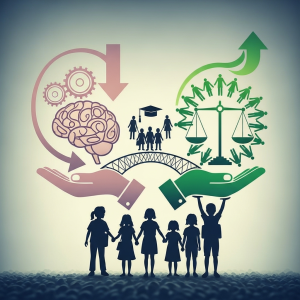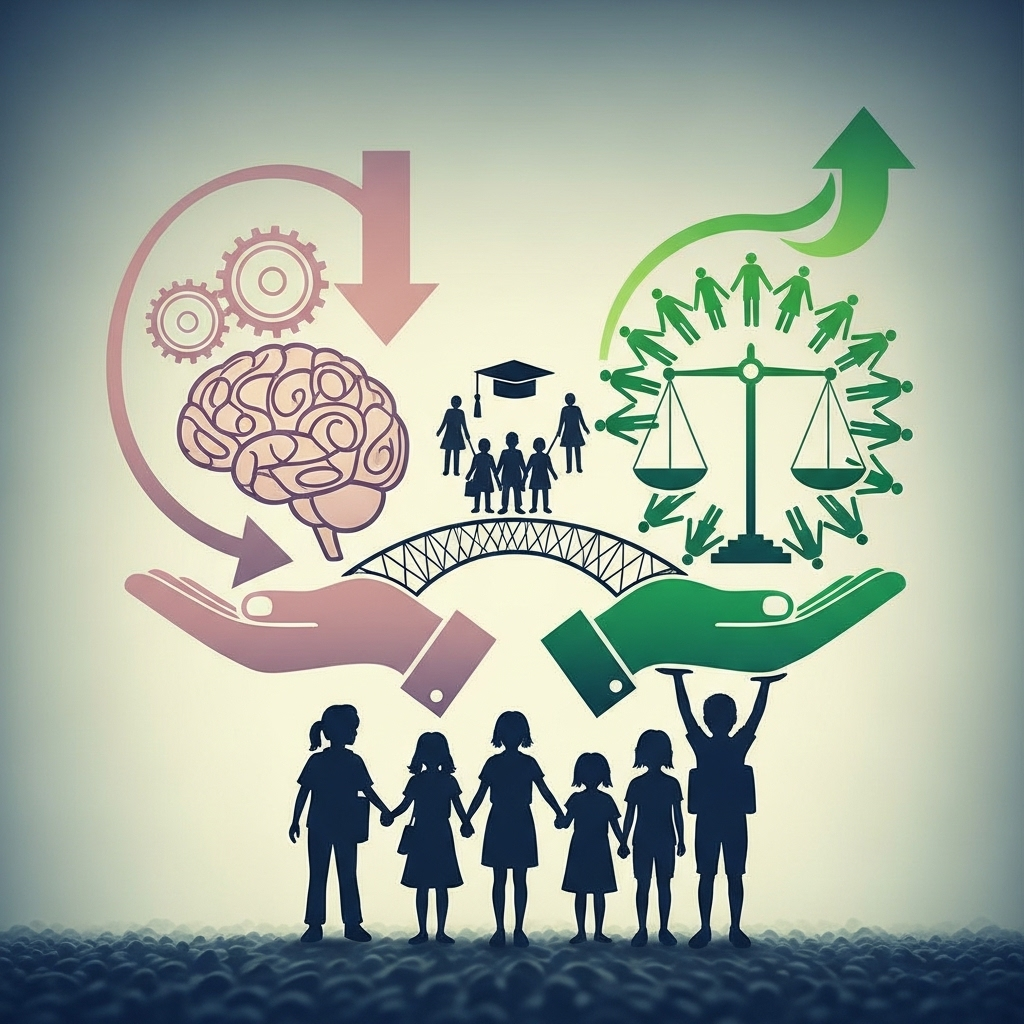 Our recent quantitative research sheds light on a critical intersection in education: the relationship between secondary school students’ mathematical reasoning skills and their democratic attitudes. Conducted with 485 seventh-grade students in İzmir, Turkey, this study aimed to uncover these connections and contribute to the development of more informed educational policies. The findings offer valuable insights into how academic and social development can be synergistically supported within the educational framework.
Our recent quantitative research sheds light on a critical intersection in education: the relationship between secondary school students’ mathematical reasoning skills and their democratic attitudes. Conducted with 485 seventh-grade students in İzmir, Turkey, this study aimed to uncover these connections and contribute to the development of more informed educational policies. The findings offer valuable insights into how academic and social development can be synergistically supported within the educational framework.The Interconnectedness of Mathematics and Democracy
Democracy and mathematics education are inherently linked. Mathematics not only enhances cognitive and analytical skills, but also serves as a potent tool for critically understanding social structures and advocating for a more just society. Similarly, the way mathematics is taught can either cultivate or hinder the development of values essential for a thriving democratic society. Therefore, strengthening mathematics education is paramount for achieving developmental goals and fostering informed citizenship.
Methodology
This study employed a relational survey model, gathering data through a Personal Information Form, the Mathematical Reasoning Assessment Test, and the Democratic Attitude Scale. These instruments allowed for a comprehensive statistical analysis of students’ cognitive abilities and their inclination towards democratic values.
Key Findings
1. Mathematical Reasoning Skills: The study revealed that students’ mathematical reasoning skills were generally at a low level. While students demonstrated relatively better performance in “Forecasting” and “Generalization,” they struggled significantly with more complex processes such as “Developing Logical Pathways to Solutions” and “Solving Non-Routine Problems.” This highlights a crucial area for improvement in mathematics education, emphasizing the need for deeper engagement with critical and analytical thinking.
2. Democratic Attitudes: In contrast, students exhibited a commendable level of democratic attitudes. High scores were observed across sub-dimensions such as “Following the Rules,” “Tolerance,” “Sense of Trust,” and “Social Engagement.” However, a relatively lower score in “Independent Movement” suggests that students may require further support in fostering autonomy and independent decision-making within democratic contexts.
3. Relationships Between Skills and Attitudes:
◦ Positive Associations: A positive relationship was found between the ability to “Decide on the Accuracy of the Solution and the Result” and students’ tendencies to “Follow the Rules” and engage in “Independent Movement.” Similarly, “Generalization” skills were positively correlated with “Following the Rules,” and “Solving Non-Routine Problems” showed a positive correlation with “Following the Rules.” These findings suggest that certain analytical thinking processes can reinforce adherence to norms and independent judgment.
◦ Negative Associations: Interestingly, negative correlations were observed between “Forecasting” skills and “Social Engagement,” as well as between “Developing Logical Pathways to Solutions” and “Social Engagement.” This indicates that students who excel in certain analytical and predictive reasoning might be less inclined towards participatory social activities.
4. Significant Influence on Democratic Attitudes: A particularly noteworthy finding from the regression analysis was that the ability to “Recognize Different Representations of the Same Data” had a statistically significant positive effect on overall democratic attitudes. This suggests that cognitive flexibility and the capacity to view information from multiple perspectives—a cornerstone of mathematical reasoning—are instrumental in fostering democratic values and openness to diverse viewpoints.
Implications and Recommendations
The findings underscore the imperative for educators and policymakers to cultivate both mathematical reasoning and democratic values concurrently. The current educational system should prioritize strategies that enhance students’ critical thinking, problem-solving abilities, and their capacity to tackle complex, non-routine problems. Simultaneously, efforts must be made to strengthen students’ independent thinking and decision-making skills within a democratic framework.
School social work plays a vital role in this endeavor. By offering targeted programs and interventions, school social services can effectively bolster students’ mathematical thinking skills while reinforcing their democratic attitudes. Integrating democratic values into the mathematics curriculum through innovative pedagogical approaches can empower students with the cognitive and ethical competencies necessary for active and informed citizenship. This holistic approach is crucial for building a more conscious, critical, and democratically committed society.
Conclusion
This research elucidates the complex and multidimensional relationships between mathematical reasoning skills and democratic attitudes. By adopting integrated educational strategies that address both academic achievement and social values, we can cultivate individuals who are better equipped to navigate the complexities of the modern world, think critically, and contribute meaningfully to a democratic society.
Listen As A Podcast
This blog post was automatically generated by AI using the article as the source. Some data may have been lost during the creation process. You are encouraged to review the original article.
Click here for the original article.
Küçükoba, E., & YILDIZ, R. (2025). Eğitimde Demokratik Değerlerin Rolü: Ortaokul Öğrencilerinin Sosyal ve Akademik Gelişimleri Üzerine Nicel Bir Araştırma. Uluslararası Öğrenen Toplum Dergisi, 2(1), 01-20. https://doi.org/10.64782/istlj22260120




